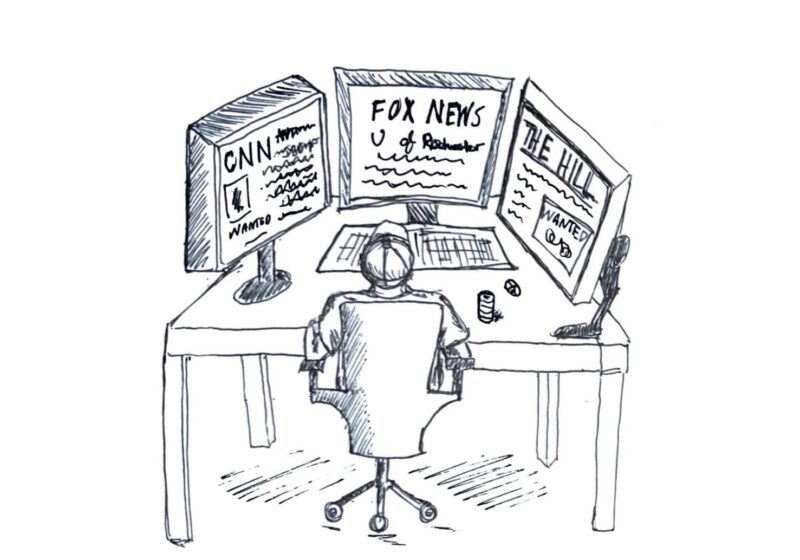Here at the Campus Times, we value technology. Computers have empowered the newspaper, bestowing us with more possibilities for communication and creation. The benefits of technology don’t just apply within the Campus Times office, however. With all of our respective majors, whether they be International Relations, Literature, Financial Economics or Computer Science, the laptop helps us out in the classroom immensely. However, with innovation comes a plague – the plague of ignorance.
The plague of ignorance does not discriminate. It afflicts even the most intelligent. The plague can be seen in the form of a BuzzFeed quiz titled “What is Your Inner Potato,” or a Facebook page. Like mold on a slice of white bread, these webpages pop up on students’ computers in any given lecture hall.
The truth is, many students use the mentality of technology as the “way of the future” to justify being disrespectful in class. Technology is a tool like anything else, and this means it needs to be used when appropriate. But what’s really the problem with checking Facebook in class? Well, the teacher might not know what you’re up to, but as the adage goes, “you’re only cheating yourself.”
A lot of college students will say they can multitask. They’re all right. We multitask every day, and it’s only becoming more and more accepted in American first world cultures – we casually pull out our iPhones in the middle of conversation and listen to music through one earbud while ordering food at The Pit, and we are hardly even questioned about it. It’s about time we raise a question: at what cost do we multitask?
At what cost do we scroll through Facebook, Buzzfeed, or Twitter while our professor lectures to us about assimilation versus accommodation, a concept we all learned in the first class of Psych and obviously don’t need to hear again? Well, we miss out on the intricacies and nuances of what the professor is lecturing about. Not all classes are created equal – assimilation might play a minor role in one class, but could play an integral one in another.
Perhaps even more importantly, when students multitask during class, it negatively affects the culture of the classroom. When students use Facebook in class, they are essentially demoting the professor’s lecture to the level of a Facebook invite or a BuzzFeed quiz on Channing Tatum. When class becomes as pertinent as a Tumblr feed and students believe this is okay, sharing ideas in class becomes a vestige of the past. This is not an evolution that should be happening – however technology evolves into the future, it should not come at the cost of the spirit of learning.
Being a part of a technological revolution is exciting. But with this excitement comes responsibility – a responsibility to use technology to our advantage rather than our demise. It’s easy to think that only you are affected when you scroll through Facebook in class. This is untrue – it affects everyone. Not only is surfing the web in lecture halls distracting, but it creates a culture – a culture in which instant gratification wins, because we let it win.
Exhibit restraint and do the right thing at your next class. Before it’s too late.




